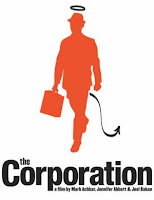The French documentary film Le Mur, The Wall: Psychoanalysis on Trial in France, could well provide an object lesson for how parents and professionals in the US could deal with stone walling and obfuscating by American health insurance companies and state Medicaid programs.
Sophie Robert, a young French documentary film maker became aware of the deplorable state of services to children with autism in France, that has for many years been dominated by the out-dated and widely rejected views of psychoanalysis, within the scientific community. She interviewed numerous well known psychiatrists who are psychoanalysts about their psychosexual views of autism, which were shockingly out of touch with objective reality, which heaped blame on the mothers of children with autism. It was Bruno Bettelheim on steroids. Since those psychiatrists control payment for most services to children with autism in France, she decided to make a film that portrayed their disturbing views in their own words, and distributed it widely in France and via YouTube throughout the world.
The film, Le Mur, has created a minor sensation in France as well as throughout much of the world. It will be shown this week at the Assn for Behavior Analysis Intl Conference in Philadelphia 4-5pm this Friday, January 27th, the day after which a trial verdict will be announced regarding Sophie’s film in a court in Lille, France brought by French psychoanalysts trying to block showing the film in France. A Press Conference will be held in NYC the day before regarding the film and its impact. Many of us are receiving frequent email contacts from French journalists about ABA services for children with in the US and about the film. Sophie’s efforts are widely supported within the French autism parent community.
Right now as we speak, private health insurance companies and state Medicaid programs throughout the US are devising yet more ways to deny insurance coverage for ABA services to children with autism, which as most of you know, has been demonstrated in over 30 studies to be a highly effective way of preserving and promoting skills of children with autism spectrum disorders. At least half end up functioning similar to their same age peers. The evidence is unequivocal, for example compared to the evidence for the efficacy of Risperdal and Prozac, psychotropic medications, which in FDA approved studies produce modest improvements among some children with autism and behavior challenges, and only in a handful of studies. Nonetheless, insurance companies seem willing to pay for those medications.
The US needs its very own courageous Sophie Roberts to take on the health insurance industry and state Medicaid programs which are attempting to compensate for their economic woes on the backs of children with autism, whose futures depend critically on receiving the appropriate effective services between 2 and 7 years of age.
I can see it now. The video would begin with a grainy old black and white film shot in a state institution of what happened to young people with autism before the advent of ABA early intervention in 1987. [ See http://www.mnddc.org/parallels2/one/video/changes.html ] The old video was shown on the evening Walter Cronkite show in 1968. Then the image would cut to insurance executives squirming before the camera trying to figure out how to get away with lying about the lack of evidence for the effectiveness of ABA treatment. The interviewer would show them a clip of the old film and ask them if they realize that is what would happen to today’s children with autism without effective treatment. They would deny it, of course, despite the concrete evidence otherwise. Or the state Medicaid Director whose job is figuring out how to slash services to save money, would reveal his or her lack of familiarity with either autism or what ABA treatment really is, or what the evidence shows.
The video would close with several clips of children during the later phases of ABA treatment, some in regular school classrooms, others participating in community outings with their families. The final frame would thank Sophie Robert and her parent collaborators for their courage and inspiration.
















